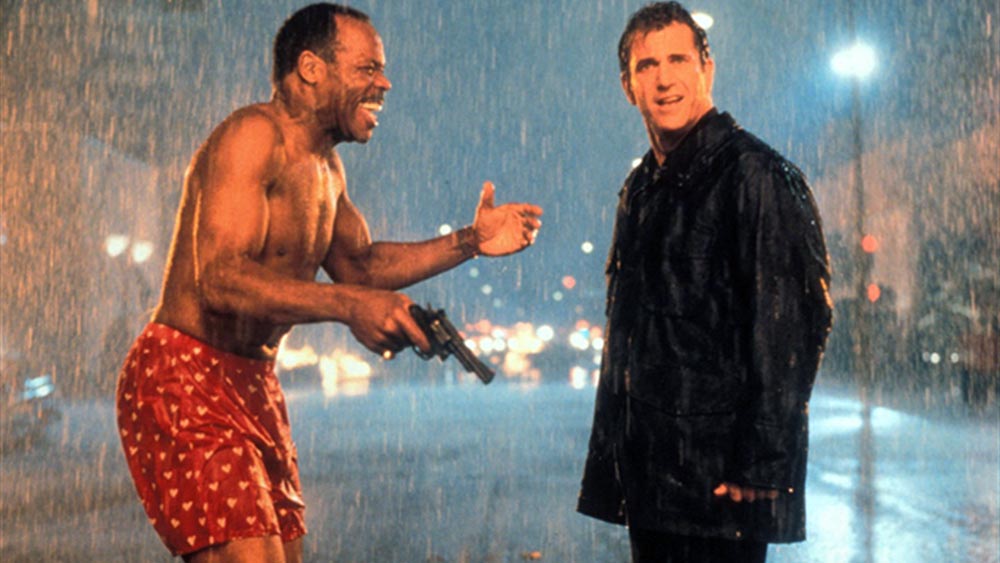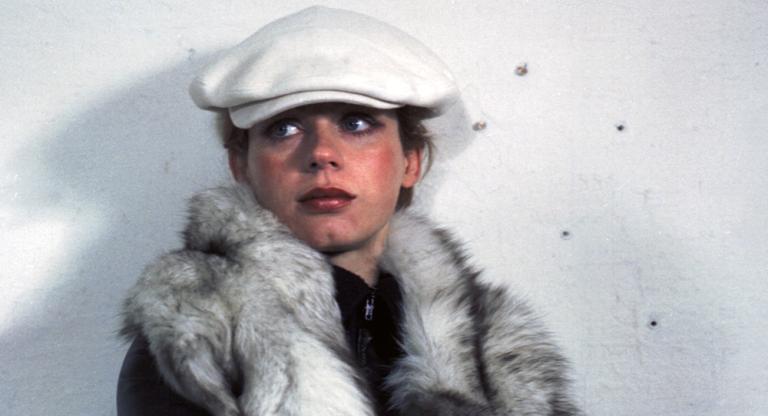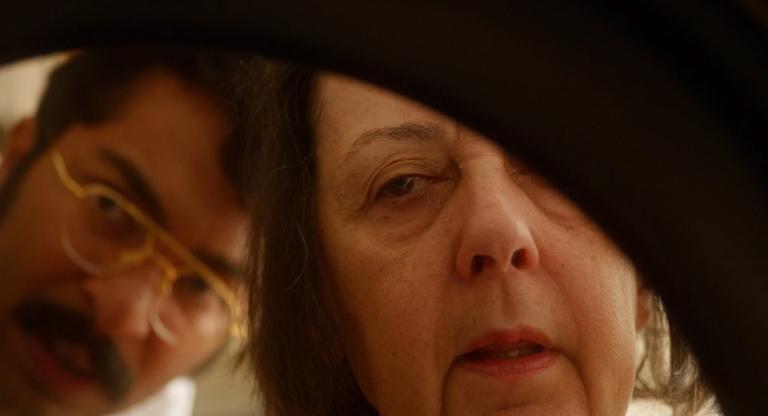In 1998, when Lethal Weapon 4 was unleashed in American multiplexes, Eastern talent was increasingly prevalent in Hollywood studio action films. The 1990s saw the first American films made by John Woo (Hard Target, 1993), Ringo Lam (Maximum Risk, 1996), and Tsui Hark (Double Team, 1997), all of which starred Jean-Claude Van Damme, as well as Jackie Chan’s breakthrough into the U.S. market, Rumble In the Bronx (1995). Long-standing American franchises largely continued as usual, with the exception of 1997’s James Bond entry, Tomorrow Never Dies, which paired Pierce Brosnan with Michelle Yeoh and the fourth installment of the Lethal Weapon series, which introduced American audiences to Jet Li.
Lethal Weapon 4 almost didn’t happen numerous times, and the film that we ended up with is the result of a series of happy (depending on who you ask) accidents. Because the first three films in the series had been monumental to moderate successes, a fourth film was inevitable, although series star Mel Gibson was hesitant to return to his role. Numerous scripts were optioned, reworked, rejected, or turned into other films—like the mad-bomber screenplay which wound up as the third Die Hard film, Die Hard with a Vengeance (1995). Series producer Joel Silver, who would later produce Hong Kong-influenced action films The Matrix (1999) and Romeo Must Die (2000), saw the potential for bringing an Eastern flavor to the decidedly American buddy-cop dynamic. This would ultimately lead to an often messy, at times convoluted, albeit action-packed script wherein Gibson and Danny Glover take on the Chinese triads who are establishing themselves in Los Angeles.
Before introducing Jet Li as the film’s central antagonist, Lethal Weapon 4’s cold open pits Gibson and Glover against a flamethrower-wielding terrorist on the streets of downtown L.A. [Ed. note: this is discussed at the opening of our podcast with sound designer Dean Hurley.] Glover is relegated to diversion, stripped down to his underwear and clucking like a chicken while Gibson proceeds to take aim and blow away the bad guy (and induce plenty of collateral damage). It wears its bloated $140 million price tag with price, boldly announcing that the more understated police-procedural nature of the three prior films will be abandoned in favor of explosive set-pieces, more in line with other action blockbusters of the 1990s. But all of those explosions and high-speed car chases can’t compete with the film’s best special effect and overall asset, Jet Li. Li had only played heroes on the Chinese screen, but in his American debut he is a menacing, nearly silent villain who is as merciless as he is delicate, establishing a much different persona than the one Jackie Chan was building in the West.
Lethal Weapon 4 grossed more money, before inflation, than any of the prior three films in the series, though it was bested by films like Saving Private Ryan and Armageddon at the box office in the summer of 1998. The series mantra, “I’m too old for this shit,” starts to seem more resigned than punchy, positioning the cantankerous lead characters as dinosaurs—not only in the context of the film’s narrative, but within the industry as well. Its attempt at bringing new blood to the series in the form of Chris Rock is largely a detour rather than an evolution. In a film that would otherwise be pedestrian, Jet Li’s carefully choreographed fight sequences have the opposite effect. These 127 minutes may run too long, and much of the humor has aged poorly (if it was ever funny), but the cultural hybridization of kung-fu action with the buddy-cop banter and practical-effects-fueled car-chase sequences of an organized-crime thriller is inspired.
Lethal Weapon 4 screens tonight, August 15, at Nitehawk Prospect Park on 35mm.



